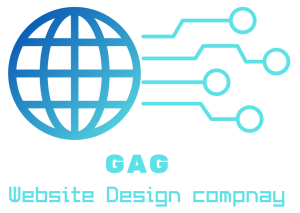In today’s digital age, Website Design for Event Planners establishing a strong online presence is crucial for event planners looking to stand out in a competitive market. A well-designed website not only showcases your expertise but also serves as a powerful tool for attracting clients and generating buzz for your events. In this article, we’ll explore essential strategies for creating an impactful website that captivates visitors, highlights your unique offerings, and ultimately drives success in the dynamic world of event planning. Whether you’re a seasoned professional or just starting out, mastering these techniques will help you elevate your online presence and thrive in the ever-evolving landscape of event management.
Understanding the Importance of Website Design for Event Planners

In the digital era, having a robust online presence is not just beneficial but essential for event planners. Here’s why:
- Visibility: An online presence ensures that your services are visible to potential clients searching for event planners. With the majority of consumers turning to the internet to research products and services, having a strong online presence increases your chances of being found.
- Credibility: A professional website and active presence on social media platforms build credibility and trust among potential clients. It serves as a virtual storefront, showcasing your expertise, past events, and client testimonials.
- Marketing: Your website and social media channels act as powerful marketing tools, allowing you to promote your services, share industry insights, and engage with your audience. By consistently sharing valuable content, you can attract and retain followers, ultimately converting them into clients.
- Networking: An online presence opens up opportunities for networking with other professionals in the event industry. Engaging with peers on social media platforms, participating in online forums, and showcasing your work on your website can help you establish valuable connections and partnerships.
- Accessibility: With an online presence, your services are accessible 24/7, allowing potential clients to learn about your offerings and reach out to you at their convenience. This accessibility can significantly expand your reach and lead to more inquiries and bookings.
Defining Your Brand Identity: Logo, Colors, and Theme
Your brand identity is the foundation of your online presence as an event planner. It encompasses the visual elements and messaging that represent your unique style, values, and expertise. Here’s how to define and establish a strong brand identity for your website:
1. Logo Design: Your logo is the visual symbol that represents your brand. It should be memorable, relevant to your niche, and reflective of your style. Hire a professional graphic designer to create a logo that effectively communicates your brand’s personality and sets you apart from competitors.
2. Color Palette: Choose a cohesive color palette that aligns with your brand’s aesthetic and evokes the right emotions. Consider factors such as your target audience, industry trends, and the mood you want to convey. Use these colors consistently throughout your website to create a visually pleasing and cohesive experience for visitors.
3. Typography: Select fonts that complement your brand’s personality and enhance readability. Stick to a few primary fonts for headings, body text, and other elements to maintain consistency and professionalism. Ensure that your chosen fonts are web-safe and accessible across different devices and browsers.
4. Visual Elements: Incorporate visual elements such as photos, illustrations, and graphics that reflect your brand’s style and resonate with your target audience. Use high-quality images that showcase your work, past events, and happy clients. Avoid generic stock photos and strive for authenticity and originality.
5. Brand Messaging: Develop clear and concise messaging that communicates your brand’s values, mission, and unique selling points. Craft a compelling tagline or mission statement that captures the essence of your brand and resonates with your target audience. Use consistent messaging across your website, social media profiles, and marketing materials to reinforce your brand identity.
Crafting an Engaging Website Layout and Navigation
Your website’s layout and navigation play a crucial role in creating a positive user experience and keeping visitors engaged. Here’s how to craft an effective website layout and navigation:
- Clear and Intuitive Navigation: Design your website’s navigation menu to be clear, intuitive, and easy to use. Use descriptive labels for menu items and organize them logically to help visitors find the information they’re looking for quickly. Consider including dropdown menus for subcategories to streamline navigation further.
- Responsive Design: With the increasing use of mobile devices, it’s essential to ensure that your website is responsive and displays properly on all screen sizes. Adopting a responsive design approach ensures that your website looks great and functions seamlessly across desktops, tablets, and smartphones, providing a consistent user experience.
- Visual Hierarchy: Use visual hierarchy principles to guide visitors’ attention and prioritize important content. Utilize size, color, contrast, and spacing to emphasize key elements such as your company logo, headline, call-to-action buttons, and important information about your services.
- Whitespace: Incorporate ample whitespace into your website design to improve readability and create a sense of openness. Avoid cluttering the layout with too many elements, as it can overwhelm visitors and make it difficult for them to focus on essential information.
- Compelling Imagery and Multimedia: Use high-quality images, videos, and other multimedia elements to visually showcase your work, past events, and portfolio. Visual content not only enhances the aesthetic appeal of your website but also helps convey your expertise and capabilities effectively.
- Consistent Branding: Maintain consistency in branding elements such as colors, fonts, and imagery throughout your website to reinforce your brand identity and create a cohesive experience for visitors. Consistent branding builds trust and familiarity with your audience, making your website more memorable.
- Accessibility: Ensure that your website is accessible to all users, including those with disabilities. Implement accessibility features such as alt text for images, keyboard navigation support, and clear, easy-to-read content to ensure that all visitors can access and navigate your website effectively.
Showcasing Your Portfolio: Highlighting Past Events and Success Stories

Your portfolio is the heart of your event planning website. It’s where potential clients go to see examples of your work, get a feel for your style, and determine if you’re the right fit for their event. Here’s how to effectively showcase your portfolio:
Curate High-Quality Content:
Select a diverse range of past events to showcase your versatility and expertise. Include a mix of weddings, corporate events, parties, and other special occasions to demonstrate your ability to cater to different audiences and themes. Choose high-quality images and videos that highlight the key elements of each event, such as decor, ambiance, and attendee experience.
Tell Compelling Stories:
Use your portfolio to tell the story behind each event. Describe the client’s vision, challenges you faced, and how you brought their vision to life. Highlight any unique or innovative solutions you implemented to overcome obstacles or exceed expectations. Sharing these stories not only demonstrates your skills as an event planner but also helps potential clients envision what you could do for their own events.
Include Client Testimonials:
Incorporate testimonials from past clients to provide social proof of your expertise and professionalism. Feature quotes from satisfied clients praising your attention to detail, creativity, and ability to deliver unforgettable experiences. Consider including before-and-after photos or videos alongside testimonials to illustrate the transformation your events can achieve.
Organize Your Portfolio Effectively:
Make it easy for visitors to navigate your portfolio by organizing it into categories or sections based on event type, theme, or industry. Provide clear labels and descriptions for each category to help visitors find the examples most relevant to their needs. Consider adding filters or search functionality to allow users to narrow down their options even further.
Keep Your Portfolio Up-to-Date:
Regularly update your portfolio with new projects and success stories to keep it fresh and relevant. Remove outdated or less impactful examples to ensure that only your best work is showcased. Consider creating a blog or news section where you can share updates about recent events, industry trends, and client testimonials to keep visitors engaged and coming back for more.
Integrating Social Media: Leveraging Platforms for Maximum Impact
Social media has become an indispensable tool for event planners to connect with their audience, showcase their work, and build a strong online presence. Here’s how to effectively integrate social media into your website:
Choose the Right Platforms:
Identify which social media platforms are most popular among your target audience and align with your brand image. Common platforms for event planners include Instagram, Facebook, Pinterest, and LinkedIn. Focus your efforts on 2-3 platforms where you can consistently share content and engage with your audience.
Link Your Social Media Accounts:
Make it easy for visitors to find and follow you on social media by prominently displaying links to your profiles on your website. Add social media icons to your website’s header, footer, or sidebar, and include clickable buttons that direct visitors to your social media pages.
Embed Social Media Feeds:
Consider embedding live social media feeds directly onto your website to showcase your latest posts and updates. This allows visitors to see your activity in real-time and encourages them to follow you for more content. Most social media platforms provide embeddable widgets or plugins that you can easily integrate into your website.
Share Visual Content:
Social media is highly visual, so prioritize sharing eye-catching photos and videos of your events. Use high-quality images that capture the essence of each event and showcase your creativity and attention to detail. Experiment with different types of content, such as behind-the-scenes shots, client testimonials, and before-and-after transformations, to keep your audience engaged.
Engage with Your Audience:
Social media is not just about broadcasting your message; it’s also about building relationships with your audience. Respond promptly to comments, messages, and inquiries from followers, and actively participate in conversations related to event planning and your industry. Engaging with your audience humanizes your brand and fosters a sense of community among your followers.
Promote Your Website Content:
Use social media to drive traffic to your website by sharing links to your blog posts, portfolio projects, and other website content. Write engaging captions that entice followers to click through to your website, and include relevant hashtags to increase your content’s visibility. Encourage sharing and reposting by creating shareable graphics and encouraging user-generated content.
Optimizing for Mobile: Ensuring Accessibility Across Devices

In today’s mobile-centric world, optimizing your event planning website for mobile devices is essential. Here’s why and how to ensure accessibility across devices:
Importance of Mobile Optimization:
- Mobile devices, such as smartphones and tablets, are now the primary means of accessing the internet for many users. Ignoring mobile optimization means potentially alienating a significant portion of your audience.
- Google and other search engines prioritize mobile-friendly websites in their search results, meaning that a lack of mobile optimization can negatively impact your website’s visibility and search engine rankings.
- User experience is paramount. Visitors who have difficulty navigating or viewing your website on their mobile devices are likely to leave and seek out a competitor’s site instead.
Key Strategies for Mobile Optimization:
- Responsive Design: Utilize responsive web design techniques to ensure that your website adapts seamlessly to different screen sizes and resolutions. This approach allows your site to look and function well on devices of all shapes and sizes.
- Fast Loading Speeds: Optimize your website’s performance for mobile users by minimizing large images, using browser caching, and leveraging content delivery networks (CDNs) to reduce load times. Mobile users are often on the go and have limited patience for slow-loading websites.
- Clear Navigation: Simplify your website’s navigation menu for mobile users, using clear, concise labels and a user-friendly layout. Consider implementing a “hamburger” menu icon to conserve space while still providing access to important navigation options.
- Optimized Content: Ensure that your website’s content is easy to read and interact with on mobile devices. Use legible fonts, appropriate font sizes, and ample white space to improve readability. Avoid using Flash or other technologies that may not be supported on all mobile devices.
- Touch-Friendly Elements: Make sure that clickable elements, such as buttons and links, are large enough to be easily tapped with a finger. Keep interactive elements spaced apart to prevent accidental taps and improve the overall user experience.
- Mobile-Friendly Forms: If your website includes forms for inquiries or bookings, optimize them for mobile users by using simple, easy-to-use input fields and minimizing the amount of typing required. Consider implementing autofill functionality and using dropdown menus or checkboxes where appropriate.
Testing and Optimization:
- Regularly test your website across a variety of mobile devices and screen sizes to ensure that it functions as intended.
- Use tools like Google’s Mobile-Friendly Test and Page Speed Insights to identify areas for improvement and optimize your site for mobile performance.
- Monitor user analytics to track mobile traffic, engagement metrics, and conversion rates, and use this data to guide ongoing optimization efforts.
Website Design for Event Planners Conclusion
In conclusion, designing an effective website for event planners is essential for establishing a strong online presence, attracting clients, and creating buzz for events.
By understanding the importance of online visibility, defining brand identity, showcasing portfolios, integrating social media, optimizing for mobile, and implementing SEO strategies, event planners can effectively leverage digital platforms to stand out in a competitive market.
Furthermore, incorporating booking forms, testimonials, and analyzing metrics enables continuous improvement and ensures a seamless client experience.
Embracing these strategies not only enhances credibility and trust but also fosters meaningful connections with clients and industry peers.
As event planners navigate the ever-evolving landscape of digital marketing, mastering these techniques will be instrumental in achieving success and elevating their business to new heights.
With a well-crafted website as their foundation, event planners can confidently showcase their expertise, attract their ideal clients, and create unforgettable experiences that leave a lasting impression.



